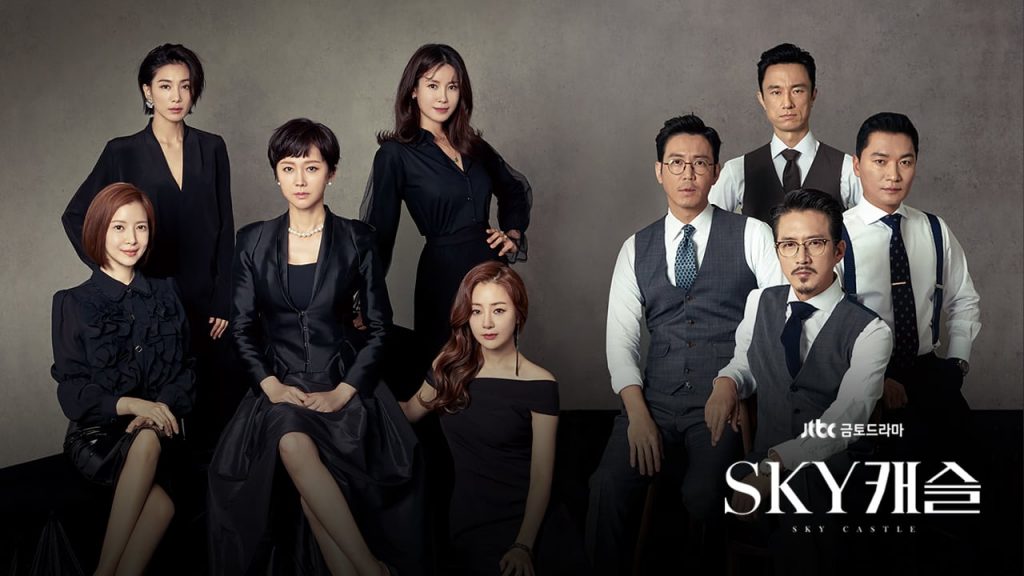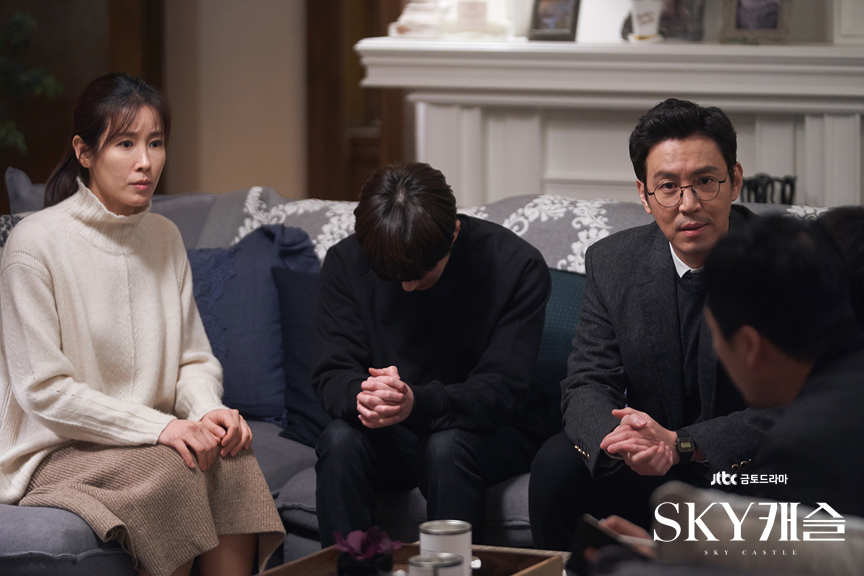The drama explores the challenges facing anxious parents in Korea as they struggle to get their kids into top universities – many of which are familiar to parents in China.
Sky Castle, a new Korean drama has become immensely popular in China.
The drama shows the struggles of four housewives to get their children admitted to prestigious universities in South Korea. They live in a luxurious neighbourhood called Sky Castle, which is restricted to those wealthy and honourable individuals who work in esteemed professions. SKY is an acronym for the country’s top three universities – Seoul National University, Korea University and Yonsei University.
The competition to enroll in the top universities is not limited to children. There is a saying in Korea that four things are needed for children to be successful: a mother with prowess and knowledge of the admission strategy, a wealthy grandfather to fund the education, a nanny’s love, and a father with no interest. The drama brings this joke to life as it describes the parents’ responsibility and conflict in a realistic way, earning empathy from the audience.
Viewers have commented that the plot of the drama was better than the average romance story. The final episode, aired on February 1, recorded a viewership rating of 23.8 percent, according to Nielson Korea.
Korean media has covered China’s enormous response to the drama. On January 21, Joongang Daily reported on the rapid growth of Sky Castle’s popularity, despite the Chinese government’s ban on Korean content. The drama was uploaded on Weibo, the largest online portal in China, soon after it aired in Korea. According to the coverage, on January 19, the night after the release of the 18th episode aired in Korea, the Chinese hashtag of Sky Castle recorded 350 million clicks and 323,000 comments in a debate thread on Weibo. The article said that about 20 million online users in China had access to the new episode of Sky Castle just 12 hours after it aired.
It is surprising that a Korean drama based on education, rather than romance or history, is so popular in China.
The drama gained an 8.9 ranking on popular Chinese social networking site Douban, with Chinese reviewers posting comments every day. Huanqiu shibao said on January 22: “Sky Castle is a black comedy that aired silently, and it made a hit by the plot. It started a huge reflection and discussion on the issue of youth education. A YouTube video (below) briefing the plot of the drama has recorded 190,000 views with numerous comments by Chinese fans.
“I finished watching the final episode today. I didn’t stop watching the whole episodes while I usually give up watching dramas before the ending,” wrote user DID YOU SEE MY BAG.
“I like it very much! Please continue to explain! I really want to catch up!” wrote unniocsis.
Intense competition for places in prestigious educational institutions is among the reasons for the series’ popularity in China. Gaokao, the nationwide entrance exam in mainland China, determines the future of around 10 million students. The parents of many children hire private tutors from as early as preschool to give themselves the best opportunity of getting into decent primary and secondary schools and later universities.
A survey published by Peking University China Education and Finance Research Institute in January found that family expenditure on education in preschool and basic education accounted for 2.48 percent of China’s gross domestic product in 2016.
This shows how highly parents in China and South Korea value a sound education, a point emphasised by many viewers in China.
Online media The Paper commented that “Sky Castle depicts Haidian Huangzhuang of Korea. The anxious, unethical parents in the drama are just eager to get their children admitted into top universities”.
The parents in the drama firmly believe that all conflicts in the family, like their children’s depression and worries about the future, will be resolved once they enter university. Even though the parents feel obliged to “prepare a quality future” for their children, ethical education inside the family is neglected, and the children doubt that their parents love them. Yebin, a middle school girl, habitually steals snacks from a store. Her mum is aware but believes that it’s a game to relieve stress from studying and secretly gives the staff of the store money for the snacks.
Suhan, Yebin’s friend, writes a review after reading The Selfish Genes by Richard Dawkins: “I should have been born as a coffee cup. Mum seems to love coffee cups more than me. Coffee cups must have selfish genes.”
Youngjae, who leaves his family after getting admitted to medical school at Seoul National University, hates his father for pushing him. His father even threatens that he won’t consider him as his son if he fails.
There is no event that can make one’s life perfect, neither can anything guarantee one’s happiness forever. The drama conveys this message in the last episode. Its popularity seems assured for a while because the reality in Sky Castle will continue after the drama has ended.
– This article originally appeared on South China Morning Post – Style Magazine.







